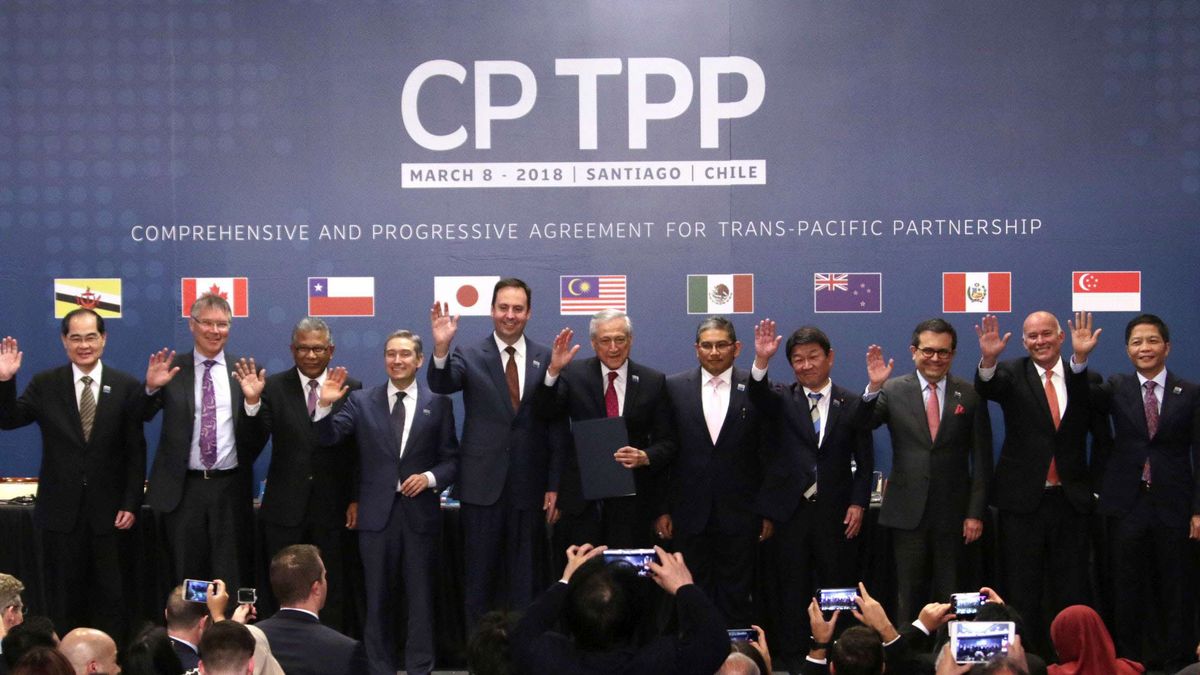The National Academy of Economics launched the study “Impacts of Cptpp and the entry of new members China and Uruguay”, that addresses the particularities of the also called Trans-Pacific Partnership and the impact it can have on the national economy. The vice chancellor Nicolas Albertoni He highlighted that the application for membership “was one of the most proactive and significant signals” in terms of national insertion by the government; while the owner of the Ministry of Foreign Affairs, Omar Paganinipointed out that the objective is to generate “better conditions” for integration.
The international insertion and the opening to new markets is one of the pillars of reforms on which the government chaired by Luis Lacalle Pou Although, a little less than a year before it comes to an end, few concrete results have been achieved in this area. In any case, the current administration continues to emphasize the importance of reaching new trade agreements with other countries and blocs, whether regionally or bilaterally; and continues to advance, at least discursively, in that direction.
Along these lines, more than a year after having formally requested entry to the Trans-Pacific Partnership (CPTPP)the National Academy of Economics, through Pharos, launched the study that analyzes the impact of joining this international economic group. The opening of the presentation was led by Chancellor Paganini, who noted that “in Latin America We normally have a rather myopic view of the benefits of trade,” and “we do not always understand the true scope of the concept of international insertion.”
For the hierarchy, the objective pursued Uruguay In terms of international relations, it is to improve the country’s wealth production, access “better markets” and generate “better conditions” for integration.”
In that sense, Vice Chancellor Albertoni also referred to the Cptpp, and noted that the application for membership “was one of the most proactive and significant of our country in terms of international insertion. Not only because of the country, but also because of the characteristics of the agreement.”
“There is a political conviction, from the moment we presented the application for membership, that the country understands that technically and politically it is in a position to do so,” he noted.
Likewise, Albertoni highlighted the support that the country has from New Zealand and Australia; although he acknowledged that the question about whether Uruguay would negotiate together with the Mercosur or if it would do so bilaterally, it was always present in the negotiation rounds, which, so far, have been seven.
The impact of entering the agreement
The study carried out by the National Academy of Economics, led by the authors Marcel Vaillant, Pedro Moncarz, Flavia Rovira and Sebastian Villano, points out as a peculiarity of the Cptpp the “multilateralization of regionalism”as its function is to gather and “nest” in a single agreement a set of previous agreements that “harmonize the rules.”
To measure the impact it has on Uruguay the entry into the Trans-Pacific Agreement, different scenarios were proposed that suppose, on the one hand, the association of only China to the Cptpp —which is also on the waiting list—, the association of the country alone, and finally the association of both nations together.
“In the analysis, the scenario with China is key and being outside the agreements generates a loss for Uruguay. In every sense, the changes we are talking about are significant changes, but they are not changes to say that we resolved the country,” Vaillant explained.
According to Moncarz, the “plus” of having an agreement like the Cptpp compared to not having it is 28% direct impact for the country. “The openness and benefit of Uruguay, Both as a buyer and as a seller, it is one of the most important and therefore it is where it brings the most shocks. Uruguay, within the members, it culminates in fourth place in terms of well-being, after Vietnam, Malaysia and Singapore”, concluded the economist.
Source: Ambito




